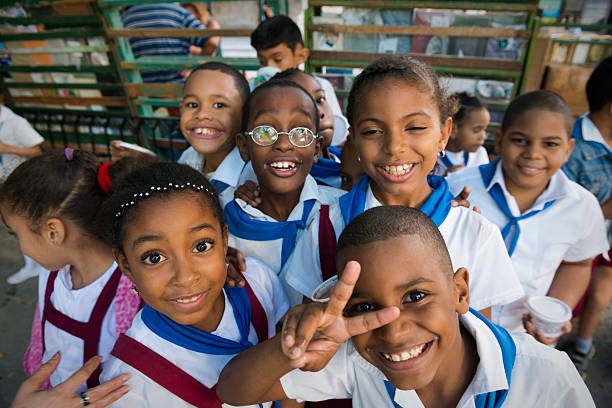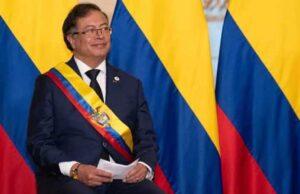No one would deny what it has meant for Cuban deputies to legislate on food sovereignty, food and nutritional security, criminal and administrative proceedings, fishing, social communication, livestock promotion and development, expropriation for reasons of public utility or social interest, family code….
Let us remember that, between 2019 and 2024, 50 laws and 115 decree laws were approved, that is, 165 legal norms of higher rank.
One issue, however, is still very sensitive for those who have the privileged opportunity to represent – also in the legal sphere – the entire population. I am talking about the Code for Children, Adolescents and Youth, whose comprehensive policy has generated a very rich exchange.
In what home has there not been, is there not or will there not be a child, an adolescent, a young person? Is there anything more important than them for a family, for a country like Cuba?
Perhaps that is where the first strength lies. It is a matter of grounding it humanly, familiarly, institutionally, legally and socially.
It is no coincidence that the Minister of Education, Naima Ariatne Trujillo Barreto, has reiterated that the draft is open to reading on the Ministry’s website, precisely as one of the actions to implement this policy from within, in line with that of the Cuban President, Miguel Díaz-Canel Bermúdez, so that it is «a code that is known, interpreted and accepted when it is approved».
OF ALL AND TO ALL, A LITTLE BIT
Although vital, education and the family are not the only determining actors in the realisation of the policy.
It is a strength that more than 20,000 children, adolescents and young people were involved in the consultation and preparation process, as well as peasants, workers, academics, scientists, associations, institutes, organisations, study centres, universities, experts on the Constitution and the Family Code, judges, prosecutors, representatives of health and other ministries.
If, as we say in baseball slang, «everybody spikes their own spays», then there may be less and less distance between the horizon of rights established for the universe of children and young people and reality.
It is very good that half a hundred laws and 116 decree-laws support rights and protect Cuban children, adolescents and young people. But it would be much better if there were no fissures within society on issues of an economic nature, access to housing, quality of the educational process, professional motivations, forms of marginalisation, mistreatment or violence… which the analysis of the comprehensive policy itself has been revealing as concerns of this segment of the population.
Abrán Sanchez, the leader of the Unión de Jóvenes Comunistas, admits that, although many of these issues are on the organisation’s agenda, there is a need for more impetus and, above all, greater integration.
National Highway, January 2025. After breathing a sigh of relief, the teenager gives me a witty «thanks for the bottle; it’s been there for a while, things are tough».
I soon realise that this statement transcends the agonies of transport. Barely 15 years old, Alejandro Cruz has been living alone in a rural community called La Amistad for four years. I cook for myself,» he explains, «I wash my own clothes, I look after my little house and I work with the farmers in the area.
-And since when did you leave school?
-In seventh grade…
Although they may not predominate, cases like this do crop up. Yanira Goúl Borne, then head of the Prevention Department at the Directorate of Labour and Social Security, with whom I discussed the matter a few weeks ago, knows about it.
«When an adolescent stops going to school, we must see this as an alarm, and act immediately together with Education, the ujc, the José Martí Pioneers Organisation, the Government, the Party, the Committees for the Defence of the Revolution and other factors».
Yanira was not speaking in the abstract. Days before, they had «saved» a teenager from People’s Council No. 3, who – even with the consent of his parents – had left school to do agricultural work.
Another case, based on cleaning rented cars or similar work, had been a little more difficult, but not impossible.
A recent research paper, published in Bohemia magazine, reported that in the Sanfield district of Holguín, 11-year-olds have been seen picking up rubbish; at 1st and 24th, Miramar, Luisito volunteers to rag tourist cars; and in Centro Habana, Juan Miguel, aged seven or eight, often sits on the pavement with a small well in front of him… to be «helped».
Situations like this can be linked to objectives such as number two of the aforementioned Policy, designed for the identification, analysis, care and follow-up of children, adolescents and young people in a state of vulnerability. The question is whether this strength is being expressed everywhere as such, or whether it becomes weakness due to a lack of action.
In Ciego de Avila, little Alexa Hernández may be suffering hardships that no just society wants for children. Her parents are serving sentences for crimes they have committed. The girl, on the other hand, is showered with affection in the home for children without family support.
Does the fact that children, adolescents or young people live with parents or other relatives mean that everything is OK?
The elderly María Valdés knows that one thing does not always have to do with the other. And that is because, next to her home, a young mother constantly (mis)treats her daughter, who is only three years old, with scolding and words, as if the little girl were an adult.
Fourteen objectives, very well defined, in short, open a door so that politics is not oblivious to such realities, or to the need for more spaces for recreation, truly comprehensive and effective vocational training, knowledge of history, civic education, solidity of values or something so apparently unrealistic, the lack of contraceptives (or lack of sexual orientation and education) that increase teenage pregnancies, as has happened in Holguín, Granma, Las Tunas, Camagüey, Guantánamo, Ciego de Ávila…
THE FRACTURES OF THE EXODUS
One phenomenon continues to accentuate its brutal impact on the skin and guts of the new generations: migration.
Judges and specialists have rightly addressed the issue in workshops on families in Sancti Spíritus and Ciego de Ávila.
Norberto Rosabal Callejas’ face darkens when he talks about two elderly Moronenses who were left alone with a young grandchild, whose care they requested. They were granted, and today they are requesting deprivation of parental responsibility for the child’s parents, who have not been heard from since they left for the United States.
The case of a woman who years ago gave her baby girl to a neighbour, emigrated and has not returned (which hinders the normal adoption process); or of a father who, now abroad, refuses to allow his child to be reunited with the mother in another country, are just two of the numerous examples that are beginning to seem «normal» (although they never will be) in any part of the archipelago.
Rosario Zabala, a manager with a superb performance in the polygraph field, finds her chest tightening at the sight of a teenage boy left with his grandfather: a man addicted to drink, with health problems, hospitalised after falling from a ladder… What awaits the noble boy?
Miriam Antonia Téllez Vargas, president of the Chamber that deals with these matters in the People’s Provincial Court of Tunisia, knows what the young clinical psychologist from Avila, Danis Rodríguez Ceballos, also stresses: the effect of the separation of parents who emigrate «to ensure a better economic situation, a better future for their children». Right, but what about the present? And what about the effect on the psyche?
Many leave without updating the situation of minor children, being able to go to the notary’s office beforehand, to temporarily delegate this responsibility to someone; to take advantage of the so-called homologation of agreement (mutual consensus of both spouses, with the presence of lawyers), the preliminary proceedings or the practice of anticipated evidence of the declaration of the parties…
For this reason, the young Liliana Palmer Martín, at the head of the Mixed Matters Chamber of the People’s Provincial Court of Espiritu, her counterpart Deyli González, and Roberto Cruz Santiesteban, from the municipality of Ciro Redondo, underline the principle of the best interests of the child, as an expression of their right to be heard and to have their opinion taken into account, in the interests of the fairest decision.
As is known, the draft Code will be submitted for parliamentary approval in July. It is currently being discussed in society. Knowledge of its content is vital for parents and adults in general. The real strength of this norm, however, will lie in its mastery by those children, adolescents and young people who are today – and will continue to be tomorrow – the direct recipients or beneficiaries of it.




